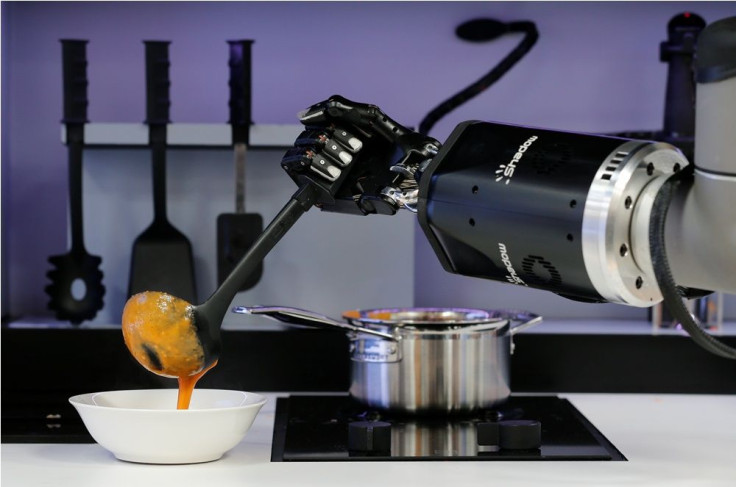Artificial Intelligence: New York Scientists Test Three Humanoid Robots For Self-Awareness And They Ace It

Self-awareness is one of the primary characteristics that artificially intelligent objects possess. Taking a step forward toward the new technology, a team of researchers claim to have found one such robot that showed a capability to differentiate itself from the others.
The researchers at the Rensselaer Polytechnic Institute AI and Reasoning Lab in New York used the game King's Wise Men to see whether the three programmable Nao robots show signs of self-awareness. Nao robots are humanoid machines produced by the French company Aldebaran.
Before experimenting with the classic puzzle, the researchers programmed the robots with the proprietary algorithm called Deontic Cognitive Event Calculus, a software which enables reasoning in robots. Using the basic fundamentals from the game, the researchers told the trio of robots that two of them have been given dumbing pills and one a placebo.
The team then asked each robot whether it had been given placebo or dumbing pill. The researchers were surprised to see when, after long silence one of the robot stood up to say, “I don't know.” Soon, the same robot stood up like a child in a classroom and said, "Sorry, I know now. I was able to prove that I was not given a dumbing pill."
After seeing the response, the researchers assumed that the robot must have understood the rules of the game and differentiate its own voice and identity from the other robotic counterparts before showing this level of self-awareness. All the details of the experiment have been captured in a video.
Selmer Bringsjord, the lead researcher, and his team are set to demonstrate their work with the robots in the IEEE Symposium on robot and human interactive communication. The event is scheduled to be held between August 31 and September 4 in Kobe, Japan.
Contact the writer at: emailtoguneet@gmail.com.





















